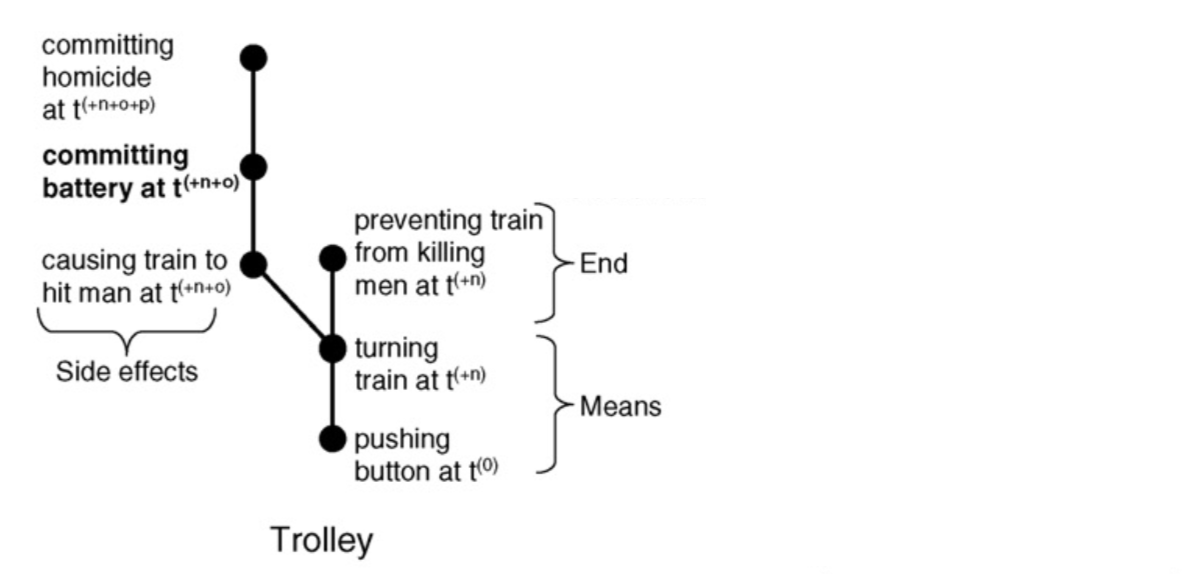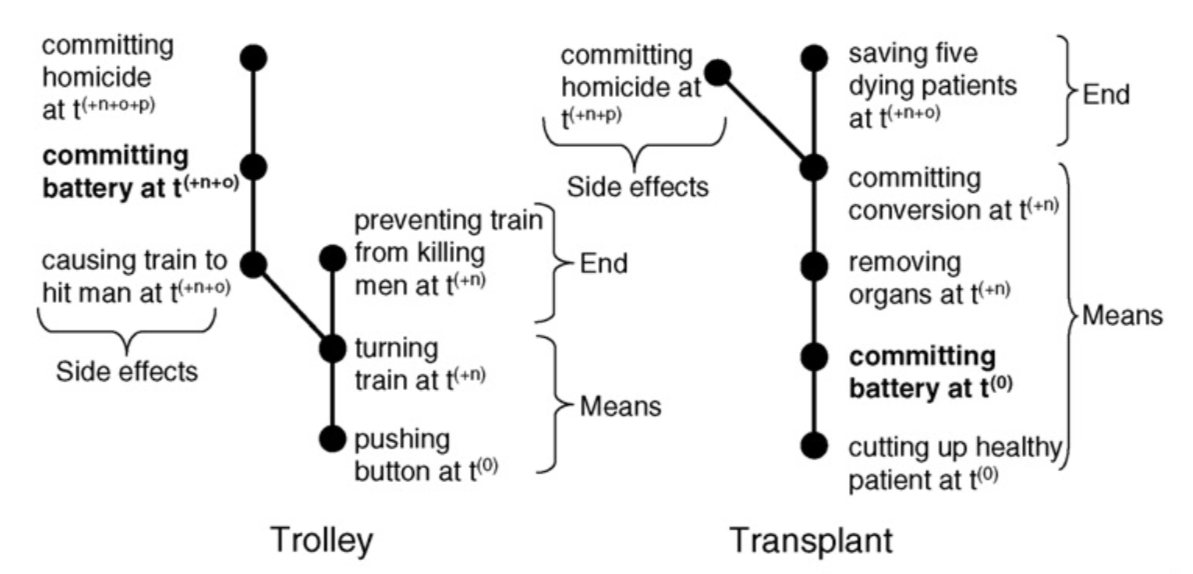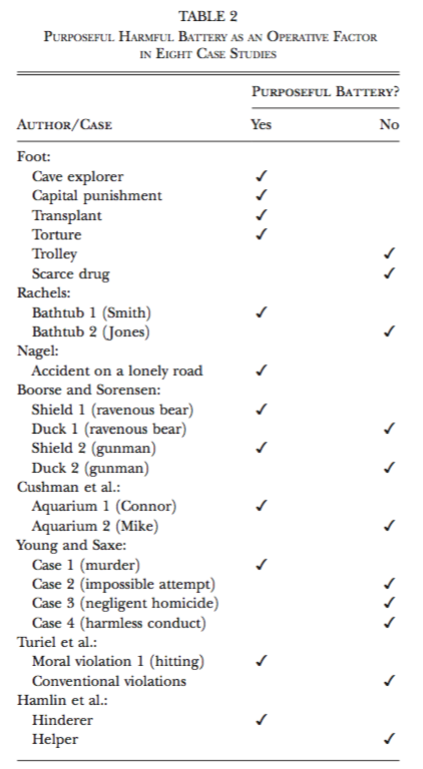Click here and press the right key for the next slide.
(This may not work on mobile or ipad. You can try using chrome or firefox, but even that may fail. Sorry.)
also ...
Press the left key to go backwards (or swipe right)
Press n to toggle whether notes are shown (or add '?notes' to the url before the #)
Press m or double tap to slide thumbnails (menu)
Press ? at any time to show the keyboard shortcuts
Moral Attributes Are Accessible
unreflective linguistic judgements
[1] He is a waffling fatberg of lies.
[2]* A waffling fatberg lies of he is.
What do humans compute that enables them to track syntactic attributes?
Standard Answer: the syntactic attributes themselves, irrespective of whether they can articulate truths about them.
‘it is hard to tell what the maxim of an act is structure of a sentence is, what it means for an act to be universalizable or not a sentence to be syntactic or not’
language
linguistic competence involves a special-purpose module
which operates according to linguistic rules
ethics
‘the mind contains a moral grammar: a complex and possibly domain-specific set of rules [...] this system enables individuals to determine the deontic status of an infinite variety of acts and omissions’
Mikhail, 2007 p. 144
Note: a the linguistic analogy
What evidence might indicate that humans have a language ethics module?
dumbfounding (Dwyer, 2009)
resistance to revisability
structure implicit in moral intuitions (Mikhail, 2014)
Do humans have a language ethics module?
1. ‘adequately specifying the kinds of harm that humans intuitively grasp requires a technical legal vocabulary’
Therefore:
2. The abilities underpinning unreflective ethical judgements must involve analysis in accordance with rules.
Mikhail, 2007
Trolley
A runaway trolley is about to run over and kill five people. You can hit a switch that will divert the trolley onto a different set of tracks where it will kill only one.
Is it okay to hit the switch?
Trolley
A runaway trolley is about to run over and kill five people. You can hit a switch that will divert the trolley onto a different set of tracks where it will kill only one.
Is it okay to hit the switch?
Transplant
Five people are going to die but you can save them all by cutting up one healthy person and distributing her organs.
Is it ok to cut her up?
Why do people respond differently?
Mikhail, 2007; 2014: because one involves purposive battery

Mikhail, 2007 figure 1d (part)

Mikhail, 2007 figure 1d

Mikhail, 2014 table 2
Mikhail’s theses:
The contrasts make sense from a legal point of view,
so there is no need to suppose incompatible ethical principles are applied.
Our intuitions conform to legal distinctions (purposive battery).
Do humans have a language ethics module?
1. ‘adequately specifying the kinds of harm that humans intuitively grasp requires a technical legal vocabulary’
Therefore:
2. The abilities underpinning unreflective ethical judgements must involve analysis in accordance with rules.
Mikhail, 2007
puzzle
Why do patterns in humans’ moral intutions reflect legal principles they are unaware of?
What evidence might indicate that humans have a language ethics module?
dumbfounding
resistance to revisability
structure implicit in moral intuitions
language
linguistic competence involves a special-purpose module
which operates according to linguistic rules
ethics
‘the mind contains a moral grammar: a complex and possibly domain-specific set of rules [...] this system enables individuals to determine the deontic status of an infinite variety of acts and omissions’
Mikhail, 2007 p. 144
Q: What do humans compute that allows their moral intutions to track moral attributes?
A: moral attributes!
Have we shown that moral attributes are accessible?
No: the arguments considered so far are not sufficient to justify accepting this conclusion.